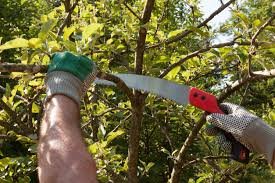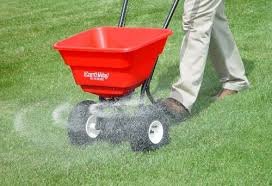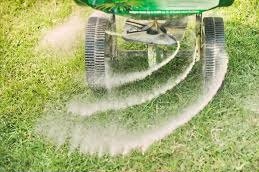We all love the spring season and as gardeners. The spring season gives us some sense of relief from the unforgiving winter season. We all know how the harsh winter weather condition wreck havoc our lawn and garden. But how do you prepare your lawn for spring season? In this article, we shall share simple tips on how to prepare your lawn for spring season.
As the cold season comes to an end, we all feel excited to usher in the spring season which comprise of warm temperatures.
During this transition, it’s the best time to plan on how to revive your fading grass as you look forward to having your usual lush and green lawn. If you are a first time homeowner, you will often look for ideas on how to revitalize your lawn.
Once common question that you will find yourself looking for answers is, how do you prepare your lawn for spring season?
In this article, we have compiled a list of easy steps outlining how to prepare your lawn for spring season.
These easy lawn maintenance practices when adhered to, you will be able to bring your fading lawn back to life without much hassle.
Steps to Prepare Your Lawn For Spring
Cleaning your Lawn
The first task that you should conduct is to clean your lawn. We all know that during the winter season, your lawn is idle and a lot of debris, twigs, and leaves accumulate on the lawn.
When you clean the lawn and remove them, you will have an easy time operating a lawn mower or other lawn care tools.
A rake or lawn sweeper machine can be used to clean your lawn. A collection bag is needed so as to hold the collected trash as you plan for safe disposal.

If you fail to clean your lawn, those debris and leaves will accumulate and form a thick layer of thatch on your lawn. Too much thatch inhibits proper flow of nutrients and water to lower root zones.
In case you find you find yourself in such a situation, a lawn dethatcher machine can help you dethatch the thick thatch layer.
- 21″ brush width yard sweeper
- Leaf Sweeper with spinning rake-like action
- Sturdy and lightweight push leaf sweeper with grass catcher design with superb maneuverability
- Adjustable leaf sweeper rake height for easy and efficient collection of debris
- Leaf sweeper with 80% pick-up on the first pass; Not ideal for collecting rocks, nuts, pinecones, or wet debris
Last update on 2022-09-20 at 10:56 / Affiliate links / Images from Amazon Product Advertising API
Lawn Core Aeration
Lawn core aeration is another key lawn maintenance practice that you need to undertake as a way of preparing your lawn garden for spring.
Lawn aeration helps in reducing soil compaction. When there is soil compaction, your lawn soil becomes very solid and this inhibits free flow of essential nutrients, water, and air to the lower root zones.
For best results, ensure that you do lawn aeration early enough before 55-60 degrees soil temperatures. The reason for doing this in advance is to prevent quick growth of common lawn weed seeds.
If you have a small lawn, you can DIY lawn aeration with a lawn aerator or spike boots. If you have a large lawn, you can hire professional landscapers in your locality who offer lawn aeration services.
Trimming Your Trees And Repairing The Damaged Sections
If you have planted perennials and shrubs in your garden, you should consider trimming and pruning them at the end of winter season.
By so doing, you will get a chance to assess them and easily identify any dried components and remove them. Pruning and trimming also helps in creating new space for new sprouts at the beginning of a new season.
Dried branches should be pruned as fast as possible because they can cause damage to your properties.

In addition, the harsh winter condition calls for frequent snow removal on your lawn an exercise which may end up damaging some sections of your lawn.
When you assess your lawn, you will identify those damaged areas and prepare on how to restore it to its former glory.
- 3 SIDED RAZOR TEETH FOR EFFICIENT CUTTING: 10″ blade is ideal for cutting 5″ – 6″ diameter, small to medium, branches
- ERGONOMICALLY DESIGNED, COMFORTABLE, CO-MOLDED HANDLE: Provides a comfortable grip for extended use
- EASY TO LATCH BLADE PREVENTS INJURY WHEN NOT IN USE: Folding blade is curved, taper-ground, and replaceable
- IMPULSE HARDENED TEETH FOR LONG SERVICE LIFE: Extends the life of the tool season after season
- UP TO 6 TEETH PER INCH AND CURVED BLADE DESIGN FOR FASTER CUTTING: Cuts are smoother and quicker than a traditional saw.
Last update on 2022-12-15 at 16:46 / Affiliate links / Images from Amazon Product Advertising API
Related; Best Electric Lawn Mowers For Small Yards
Fertilizer Application With Pre-Emergent Weed Killer
During the winter season, your lawn grass deplete most of the soil nutrients. As you usher in the spring season, it’s advisable to apply fertilizer to your lawn so as to replenish the dwindling nutrients.
Fertilizer application at this stage helps in boosting grass growth as well as strong root development. A lawn fertilizer spreader is the ideal equipment to use when applying solid fertilizer.
Also, you can combine fertilizer application and weed control.

You can mix a pre-emergent herbicide and your fertilizer and spray on your lawn using a garden sprayer. Such control measures help in curbing the germination of lawn weeds which can affect proper growth of your lawn grass.
The most ideal time to apply pre-emergent weed killers is when the soil temperatures range between 55-60 degrees. It’s during such soil temperatures that most common lawn weeds such as crabgrass starts to germinate.
When you apply your pre-emergent weed killers too early, it will not have an impact and you will end up wasting your time and money.
Mowing At The Right Time
Mowing your lawn is very essential. However, do not mow your lawn at a very early stage so as to give the grass enough time to replenish and develop better and strong root system.
For a thicker and lush lawn, consider giving it enough time to grow up-to about an inch taller than the mower blades. At this stage, the lawn grass will have fully matured and it’s ready to be trimmed.
When you have a schedule to mow your lawn regularly, you will always have a greener and attractive garden.
Watering Should Be Done In A Moderate Way
When the winter season is over, you should not start watering your lawn immediately. You may start noticing some brown and faded patches on your lawn that were severely affected by the harsh weather conditions.
Don’t worry because, when you wait for a week or two and you will start seeing your grass sprouting on the faded areas.

If there are no rains yet, you can start watering your lawn twice per week either in the evening or early in the morning.
Don’t Over-Seed At This Time
After the winter season, you will often spot a number of faded or brown patches on your lawn. I know you always feel the urge to re-seed such sections. But don’t do it yet, wait a little longer.
The reason is, if you have recently applied any pre-emergent weed killer, it will also inhibit the grass seeds from germinating. Therefore, you should always buy sometime and re-seed during the fall season.
When reseeding your lawn, go for high quality grass seeds and a variety that is similar to the type of lawn grass that you have in your lawn.
You can use a drop or broadcast lawn spreader when over-seeding your lawn.
- Fingertip levers control direction and volume
- Large opening allows easy filling and cleaning
- 20 lbs Capacity hopper with cap protects operator from chemicals and Dust
- Manufacturer: SOLO
Last update on 2022-08-22 at 11:04 / Affiliate links / Images from Amazon Product Advertising API
Lime Application- How to Prepare your Lawn for Spring
Lime is applied to lawn as a method of lowering soil acidity levels. If you spot moss plants in your lawn, it’s a good indicator that you have an acidic soil. Most lawn grass varieties do well in a soil with a neutral pH level.
When you add lime to your lawn soil, it will reduce the acidity levels of your soil. A less acidic soil creates a good environment for optimal lawn grass growth.
But how do you go about it? First, you need to take a sample of your lawn soil in a lab for professional soil pH levels analysis.

You will be given the results of your soil status and this is what will guide you on which components that you need to either add or reduce.
I hope the above tips with practical ideas on how to prepare your lawn for spring will guide you in restoring your faded lawn after a hard-hitting winter season. When you implement them, you will definitely take delight on a lush and greener lawn that is always attractive.

